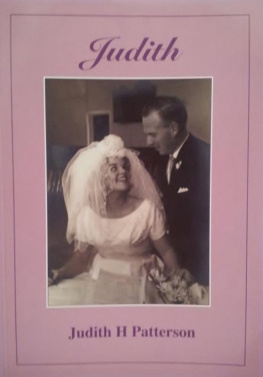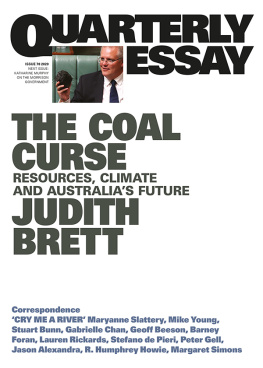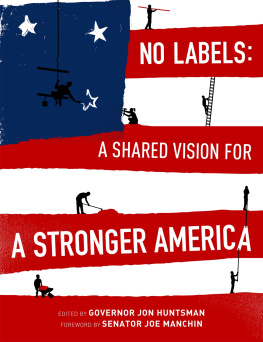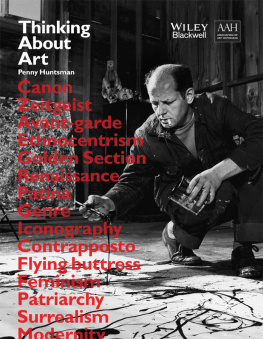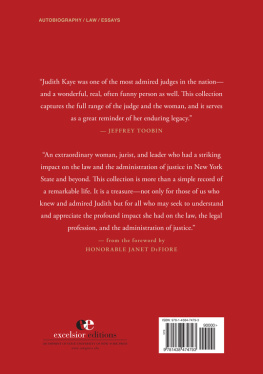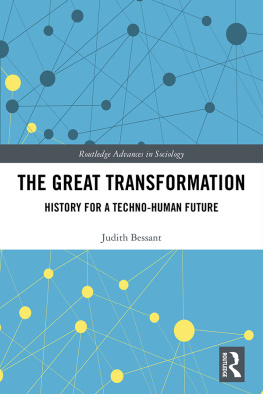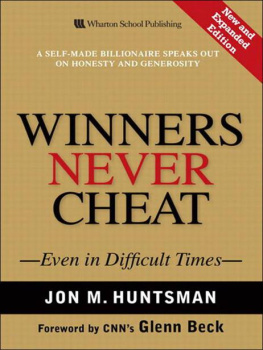Judith Huntsman - The Future of Tokelau
Here you can read online Judith Huntsman - The Future of Tokelau full text of the book (entire story) in english for free. Download pdf and epub, get meaning, cover and reviews about this ebook. year: 2007, publisher: Auckland University Press, genre: Politics. Description of the work, (preface) as well as reviews are available. Best literature library LitArk.com created for fans of good reading and offers a wide selection of genres:
Romance novel
Science fiction
Adventure
Detective
Science
History
Home and family
Prose
Art
Politics
Computer
Non-fiction
Religion
Business
Children
Humor
Choose a favorite category and find really read worthwhile books. Enjoy immersion in the world of imagination, feel the emotions of the characters or learn something new for yourself, make an fascinating discovery.

- Book:The Future of Tokelau
- Author:
- Publisher:Auckland University Press
- Genre:
- Year:2007
- Rating:5 / 5
- Favourites:Add to favourites
- Your mark:
- 100
- 1
- 2
- 3
- 4
- 5
The Future of Tokelau: summary, description and annotation
We offer to read an annotation, description, summary or preface (depends on what the author of the book "The Future of Tokelau" wrote himself). If you haven't found the necessary information about the book — write in the comments, we will try to find it.
The Future of Tokelau — read online for free the complete book (whole text) full work
Below is the text of the book, divided by pages. System saving the place of the last page read, allows you to conveniently read the book "The Future of Tokelau" online for free, without having to search again every time where you left off. Put a bookmark, and you can go to the page where you finished reading at any time.
Font size:
Interval:
Bookmark:
THE FUTURE OF TOKELAU
DECOLONISING AGENDAS , 19752006
JUDITH HUNTSMAN
with Kelihiano Kalolo

First published 2007
This ebook edition 2013
Auckland University Press
University of Auckland
Private Bag 92019
Auckland 1142
New Zealand
www.press.auckland.ac.nz
Judith Huntsman, 2007
eISBN 978 1 86940 665 3
Publication is assisted by the History Group, Ministry for Culture and Heritage
National Library of New Zealand Cataloguing-in-Publication Data
Huntsman, Judith.
The future of Tokelau : decolonising agendas, 19752006 /
Judith Huntsman with Kelihiano Kalolo.
eISBN : 978-1-86940-665-3
Includes bibliographical references and index.
1. TokelauHistory. 2. TokelauEconomic conditions.
I. Kalolo, Kelihiano. II. Title.
996.15dc 22
This book is copyright. Apart from fair dealing for the purpose of private study, research, criticism or review, as permitted under the Copyright Act, no part may be reproduced by any process without prior permission of the publisher.
COVER DESIGN : Christine Hansen
I am most grateful to the Ministry of Foreign Affairs and Trade for a small grant that enabled me to begin documentary research on Ministry files in 1999, and for permission to access files that are not yet generally available, both at Archives New Zealand and within the Ministry. The Ministrys archivists, specifically Graeme Eskrigge, Karen Bolger and John Mills, have been graciously responsive to my requests and helpful in resolving problems. Archives New Zealand staff were invariably informative and accommodating. A special thanks to John Fleming, who was Advisory Officer in the Ministrys Tokelau Unit in 200406 when I was completing my research, for expediting my use to recent files.
I am indebted to past and present New Zealand Government officials and others who shared their recent and remembered experiences and thoughts. Some even provided copies of letters, reports and other documents they had written to Antony Hooper and myself. They include, in no particular order: Frank Corner, H. H. (Tim) Francis, Ken Piddington, Neil Walter, Tony Angelo, Graham Fortune, John Larkindale, Tony Browne, Adrian Macey, Tony Johns, John Springford, Suzanne Loughlin, Rod Gates, Don Stewart and Lindsay Watt.
The generosity of photographers of Tokelau in providing images nearly overwhelmed me and I must thank all those who made their images available (even if they were not used in the end): Michael Field, Angela Gregory, Tony Johns, Valerie Green, Bill Gasson, Herman Oberli (via Paul Cotton) and Tony Hooper, as well as the Ministry of Foreign Affairs and Trade and the New Zealand Defence Force. Also I thank Julie Park and Jack Patana for taking needed portrait photographs at short notice, and Tim Mackrell for numerous expert photographic services.
Numerous Tokelau people have, over the years, contributed in discussions, reports and explanations to my understanding of their views and perspectives. I cannot name them all, but recognising the risk of neglecting someone, I feel an obligation to personally thank Tioni Paselio, Kaloline and Pelenato Palehau, Otila and Vaha Tavite, Casimilo Perez, Aleki Silao, Manea Paselio, Vaelua and Feleti Lopa, the late Logotasi Iosefa, the late Kula Fiaola, Ivoni and Loimata Iupati, the late Ema Aliu, Matafele Pereira, Aga and Amusia Patea, Nua Hakai, Dr Iuta Tinielu, Dr Iona Tinielu, Betty Pedro Ickes, Ioane Teao and Fulimalo Pereira-Evans.
This book has been something of an off and on ten-year project. I am grateful to Auckland colleagues and friends, who encouraged me and commented as I talked both formally and informally about parts of it. I am especially grateful to Robin Hooper who read early drafts of all chapters, to Aleki Silao and Tony Johns for their informed reading of the chapters in which they figured, and to Tony Angelo for checking the whole manuscript from his legal perspective. Elizabeth Caffin encouraged me to write this book from the start and she and her staff at Auckland University Press periodically urged me on when I thought it would never end. My thanks to them for their continual support and final care, to a very perceptive anonymous reader, and to editor Michael Wagg for smoothing the final text with tact and sensitivity.
I am of course extremely grateful to Kelihiano Kalolo for his input to this work. In stating the usual caveat that any errors or misrepresentation are entirely my own and regretted, I must specifically exempt Keli from any responsibility for them.
Over the past 40 years I have enjoyed the friendship and hospitality of Tokelau people in all the atolls and within New Zealand. I cannot name everyone the time is too long, the people too many so I do heartily thank you all.
Finally, Keli especially thanks his wife, Atene, for her patience and support, and so do I.
Tokelau is the second smallest dependency over which the United Nations Special Committee on Decolonization has oversight (Pitcairn is smaller). New Zealand is a nation-state of which Tokelau is by Act of Parliament a part and within which reside presently an estimated seven times more Tokelau people than are living in the homeland. New Zealand is also the administering power responsible to the United Nations Special Committee for the welfare and future decolonisation of Tokelau, and this responsibility rests with the Ministry of Foreign Affairs and Trade. The Future of Tokelau is about the interaction of tiny Tokelau and the vast United Nations, mediated by New Zealand. It is also a sequel to Tokelau: A Historical Ethnography (1996), a study of Tokelau from its ancient history (as it is told in Tokelau) to the late 1960s and early 1970s when Antony Hooper and I conducted intensive ethnographic research in the three atolls. The story told there was of how the three atoll communities came to be as they were when we encountered them, and, more particularly, of how and why they were different from one another.
The Future of Tokelau is historical too, but it is a short history, taking up where the earlier book ended (the first chapter recapitulating and expanding upon the last chapter of its predecessor) and concluding in 2006. Its overriding theme is the future as it is perceived by Tokelauans, who speak among themselves of their lumanaki, and the perceptions of others who speak, from a distance, of the Future of Tokelau. Between the two there is a mismatch. Other mismatches, resulting in misconceptions, miscommunication and incomprehension, abound and will become apparent as the story unfolds.
The narrative is not strictly chronological. Part One provides historical background. self-determination tracing the course of central concerns and issues as they were variously initiated, developed, redirected, transformed, interpreted, and misunderstood through to the end of 1992. The three chapters of Part Three deal with three designs for Tokelaus future in chronological order. Financial and legal matters are sidelined: issues of funding and finance are mentioned from time to time because they are enmeshed with other matters, but a close examination of them is beyond my competence and would be invidious in some instances; legal matters, I also only touch upon, again owing to lack of expertise and also because they have been very competently written about by Tony Angelo, Professor of Law, Victoria University of Wellington.
This book is both a history and a story. It is a history in the sense that it reports on real events and real people, and that it is set in real times and spaces. Yet it becomes a story in the way that it is put together, and in how events are related to one another and to people involved in and with them. It is a story constructed from the different points of view of collectivities or groups of people, represented by specific actors. Any such collection of people is never homogeneous of one mind or harmonious voice but for the purposes of this story that dissonance is somewhat submerged. Who then are the people that form these different choruses? Tokelau, as a people, is the foremost, for it is their future around which the story revolves. But this is not a chorus that always sings in harmony either in the homeland or abroad. Likewise, the New Zealand Governments several statutory bodies are not always in tune, and their tunes change from time to time. Even the United Nations has been known to modify its song over the years.
Next pageFont size:
Interval:
Bookmark:
Similar books «The Future of Tokelau»
Look at similar books to The Future of Tokelau. We have selected literature similar in name and meaning in the hope of providing readers with more options to find new, interesting, not yet read works.
Discussion, reviews of the book The Future of Tokelau and just readers' own opinions. Leave your comments, write what you think about the work, its meaning or the main characters. Specify what exactly you liked and what you didn't like, and why you think so.

